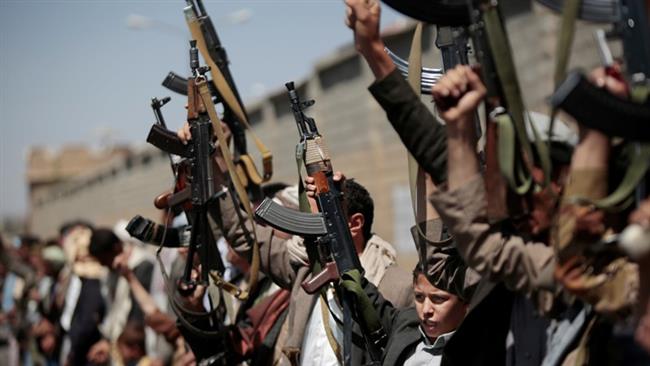
RNA - According to Saudi media, the casualties came after Yemeni forces launched mortar attacks against the region on Thursday.
Yemeni sources said that several rocket launched by Yemeni army had hit a gathering of Saudi forces in Jizan.
Elsewhere, a soldier soldier was killed in clashes with Yemeni forces on its southern border. Yemeni forces also targeted a Saudi military base in the southern city of Taiz, killing and wounding an unspecified number of them.
Such attacks are part of a drive by Yemen’s Houthi Ansarullah movement and allies to avenge more than 15 months of military aggression by Saudi Arabia.
On Thursday, Saudi warplanes targeted residential areas in the Bani Hashish district of Sana'a three times, killing a civilian and injuring several others, Yemen's al-Masirah television reported.
Saudi jets also pounded the Nehm district of Sana'a province and dropped cluster bombs on the Qatab area but there were no immediate reports of possible casualties.
The attacks came as the US Secretary of State John Kerry said that Saudi Arabia and the Houthis had agreed to observe a cessation of hostilities from November 17.
Speaking after talks in Oman and the United Arab Emirates, a key Saudi ally in the war, Kerry said he had presented Houthi delegates with a document outlining a ceasefire and peace deal.
Yemen’s warring sides had further reached a consensus to work out a “national unity government in a safe and secure Sana'a... as a goal towards the end of the year,” he said.
In reaction to Kerry’s remarks, Ansarullah spokesman Mohammad Abdulsalam held the US accountable for the deadly war, saying Washington has been “leading” the military campaign against Yemen.
Yemenis are demanding a halt to Saudi attacks and “unjust” sanctions against the impoverished country, he said.
Mohammed al-Bukhaiti, a member of Ansarullah's political council, said on Wednesday that the movement’s “position has been and still is with stopping the war and the establishment of a national unity government that incorporates all political components.”
Abdel Malek al-Mekhlafi, a representative of the resigned president Abd Rabbuh Mansour Hadi, rejected the peace plan, saying Kerry’s announcement had not been coordinated with them.
The Houthi Ansarullah movement took state matters into its hands after Hadi resigned and then fled to Saudi Arabia. Riyadh then unleashed a ferocious military campaign to return Hadi to power and crush the Houthis.
The Saudi war has killed at least 11,400 civilians, according to a recent tally by a Yemeni monitoring group. There have also been countless reports on deliberate and indiscriminate targeting of civilian infrastructure by Saudi forces and mercenaries.
847/940